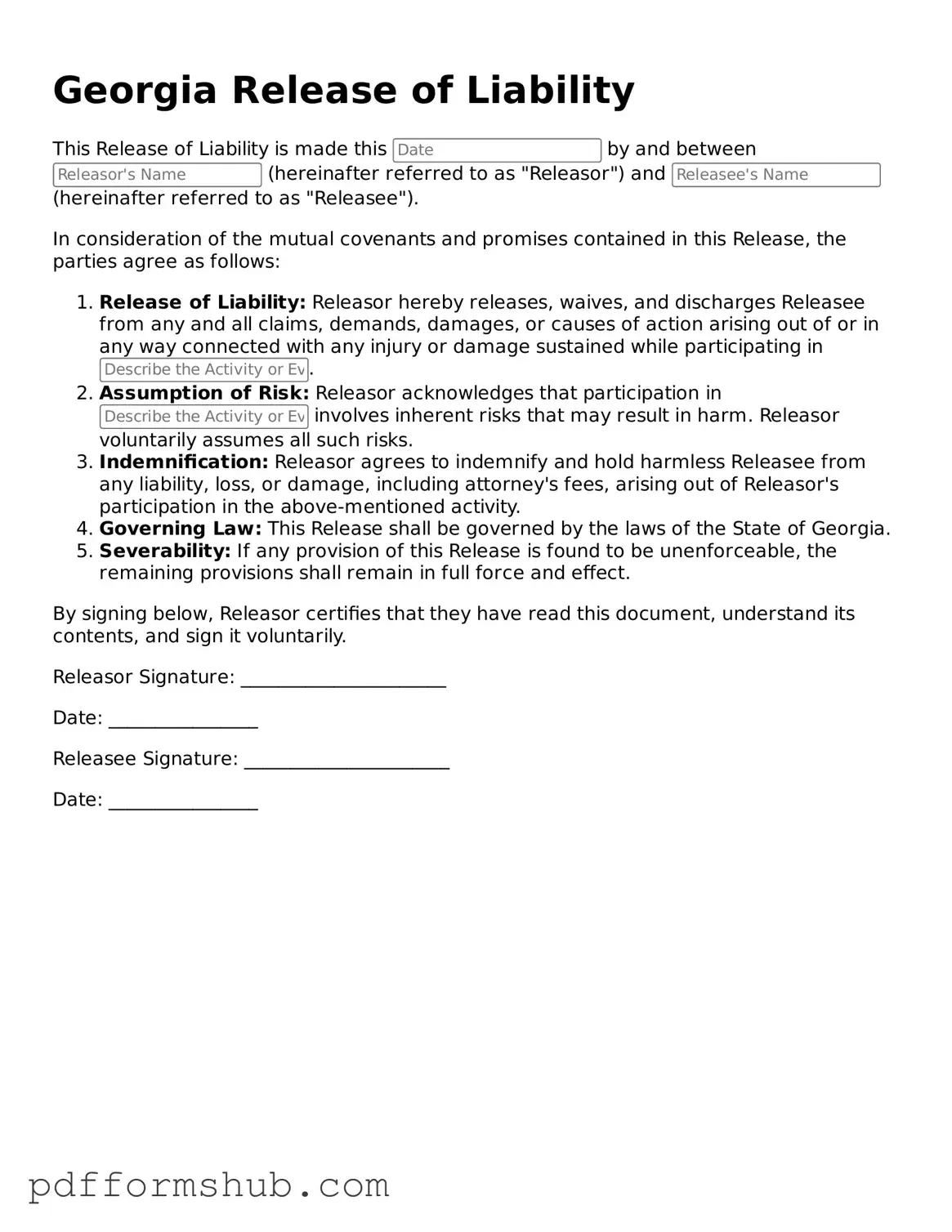Attorney-Verified Release of Liability Form for Georgia State
The Georgia Release of Liability form is a legal document designed to protect individuals and organizations from being held liable for injuries or damages that may occur during specific activities. By signing this form, participants acknowledge the risks involved and agree not to hold the provider responsible. If you're ready to safeguard your interests, consider filling out the form by clicking the button below.
Customize Form

Attorney-Verified Release of Liability Form for Georgia State
Customize Form

Customize Form
or
Free PDF Form
Short deadline? Complete this form now
Complete Release of Liability online without printing hassles.